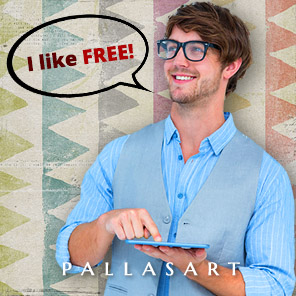Learn 10 Design Tips that are essential to make your website a success.

Chapter XXIII
Vladimir into exile
Next day Vladimir set out for Petrograd and the Tche-Ka. It was not Bokiy he saw, but Ouritzky himself. Ouritzky received him very amiably, asked him to sit down and, after some questions about his verse-writing and his works, said:
"I made you come here because I wanted to know you. I know you are an honest boy. . ."
My son bowed ironically. Ouritzky pretended to ignore this gesture, and repeated:
"An honest boy. I am going therefore to ask you to renounce once and for all your father, Paul Alexandrovitch, the ex-Grand Duke. . ."
"What-what is that you say?" exclaimed Vladimir, knitting his brows.
"I repeat: You are going to sign a paper saying that you cease to regard Paul Alexandrovitch as your father, and then you will be free at once; if not, you will sign this other paper and that will mean exile."
My son (who described the scene to me as soon as he came back, still boiling over with rage) now kept his gaze firmly fixed on Ouritzky. . . . Then, without averting his eyes, he took his cigarette-case out of his pocket and began to smoke. . . . This scene without words lasted for some moments. Ouritzky must have seen in my son's face such a look of reproach and contempt that he said brusquely:
"Very well, then, if that's how it is, sign your sheet of departure into exile."
Vladimir stood up, signed and went out without saying a word.
"To-morrow you will send me two photographs," called out Ouritzky when my son had already reached the door.
Next day, on the pretext of handing to Ouritzky the photographs asked for, it was I who returned to the Tche-Ka. I was ready to do anything to save my child. In the great dining-room in which I had been to dinner in former days with General de Wahl, the Chief of the Police, I found the three princes, the son of the Grand Duke Constantine, and the wife of Prince Gabriel, who was absent himself this day. She had been a dancer in the imperial ballet corps, and Prince Gabriel had married her since the Revolution. It was she who later saved her husband's life, having had an intimate friendship with Bokiy, already mentioned. She had come, as I had two days earlier, to ask permission for her husband not to leave, in view of his delicate health. The other princes were there to arrange the details of their going. Ouritzky kept me waiting two hours and received me about three o'clock in the afternoon, after the departure of all those who had been in the diningroom. He received me in the middle of the room. Small, stockily built, bandy legged, a big head, curly, fair hair. His eyes small, hidden behind pince-nez, his nose hooked, his lips fleshy. He had an evil, ironical smile. He was a repulsive type of Jew - of the bad, malignant Jew.
"What were you wanting, Madame? "
"My son was here with you yesterday, Monsieur." (I was furious with myself as I felt my voice trembling.) "You wanted two of his photographs. Here they are. But I was anxious to beg and implore you, Monsieur, to leave my beloved son with me. He is ill, his lungs are affected. He has neurosis of the heart; you have seen how pale he is."
"Oh, Madame, all that is just a mother's talk. Neurosis of the heart! Did anyone trouble about that neurosis when the Imperial Government kept us in prison and when I-I who am now talking to you-got tuberculosis? "
"But, Monsieur," I ventured "you were in prison for something, you had committed some offence, some crime. You were acting against a Government, you had taken sides against public order. . . . My son has done nothing except take part in the war, and you cannot reproach him for being the son of a Grand Duke. Spare him, I beseech you! "
"No, no, 'Madame, your supplications are useless. To-day is Saturday. He will leave with the others on Tuesday at six in the evening. They will go to Viatka, where no harm will come to them. A special compartment has been reserved for them. You can accompany him to the station."
I returned home. My heart was heavy with forebodings. I prayed and wept for a long time. But not wishing to let my dear ones perceive my anguish, I went down to dinner gay and smiling. I could not take my eyes off my boy's dear countenance. That forehead of his, so white and pure, the regular arches of his eyebrows, his great eyes with so much depth in them, and his laughing mouth! Two days only separated me from the terror of his going. On March 22nd/April 4th, after a night of sleeplessness and weeping, I rose and my first thought, returning to the cruel reality, was: " You will see your dear Bodia for the last time this evening-you will kiss him, you will give him your blessing for the last time." Those words: "for the last time" had grown into a veritable obsession. My fears stifled me, I felt as though I should go mad. Having always had control over myself, however, I succeeded in concealing the intensity of my suffering. After lunch, we remained, all the five of us, clinging together, miserable, heartbroken with grief. My dear husband spoke to Vladimir with all the tenderness, all the nobility of that heart of his. He could not feel anything but approval for the conduct of his son who was going into exile for refusing to renounce him, his father. . . . He spoke of the Emperor and of the oath our son had taken to him the day of his promotion as officer. Nothing in the world, no abdication of the Emperor, could annul that oath. He spoke of the hope . . which he had that the accursed regime would not last and that one day we should meet again, all of us, happy and free, in our dear France.
The Tsarskoe trains had become few, we had to start by the train of three o'clock, although that which Vladimir was to take from Petrograd was not to leave until seven o'clock, we had, therefore, three and a half hours to spend in town. I went straight to Marianne who was living in a pretty little flat in the Morskaya, 59, in the house of my son Alexander. Vladimir went to say good-bye to his sister, the Grand Duchess Marie, Princess Pontiatine, who was expecting a child in three months' time and who could not accompany him to the station. Then he came back to Marianne's where some friends had met to take farewell of him. Alexandre Polovtseff and his wife, Princess Sophy Dolgorouky (who had since become Princess Wolkonsky), the Comte de Saint-Sauvuer, his brother officer, Maltzoff, M. Roumanoff, his publisher, etc. To accompany my son into exile I had got hold of a young Polish servant named Tscheslav Kronkovsky, who looked after him admirably and to whom Vladimir was to give the highest praise in his letters.
The hour of departure was drawing near. The young Pole went on with the luggage and heaps of all kinds of provisions which I entrusted to him for my boy. That good Armand de Saint-Sauveur took us all in his automobile to the Gare Nicholas, where we arrived at about half-past six. After countless difficulties and showing all kinds of permits we reached the platform. We found there, also ready to start, the Grand Duke Serge Michallovitch, Chief of the Artillery during the war, a man of remarkable intelligence. I had not seen him for more than a year, and I scarcely recognised him so greatly he had changed. The Princes John, Constantine, and Igor were also there as well as Princess John, daughter of King Peter of Serbia, a woman of brave and noble heart, who did not hesitate to. follow her husband into exile. Seeing my grief, she promised to look after my son, and in all his letters Vladimir spoke of her with admiration and enthusiasm. Since then the terrible trouble which wrecked her life and mine has brought us still closer together and I cherish and venerate her among the friends I love most tenderly.
The moment of the departure had come. Clasping my child to my heart, I covered him with tears and kisses. The fatal bell rang out, the engine whistled, the train began to move away slowly, and my adored son disappeared for ever. . . .
Sunk down in a corner of Saint-Sauveur's automobile, I sobbed. All the others kept silence in the presence of my grief as a mother who felt that her child was lost to her. I went back to Tsarskoe by the last train, and my husband, who was anxiously awaiting my return, saw from my reddened and tear-swollen eyes what emotions I had gone through. He took me in his arms and the two of us wept for this son whom God had given us, this son who was our bond, our hope and the symbol of happiness and fidelity in love.





